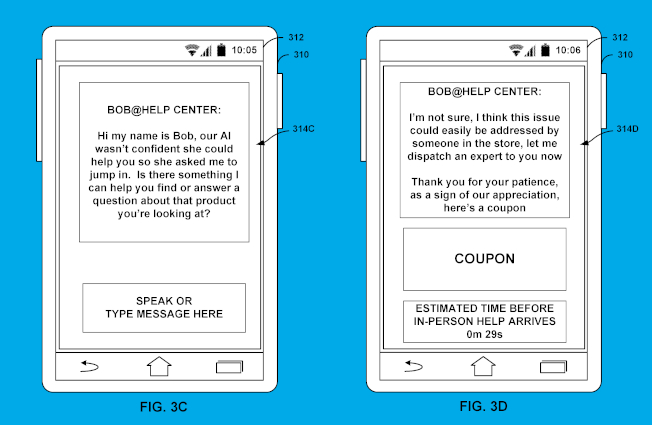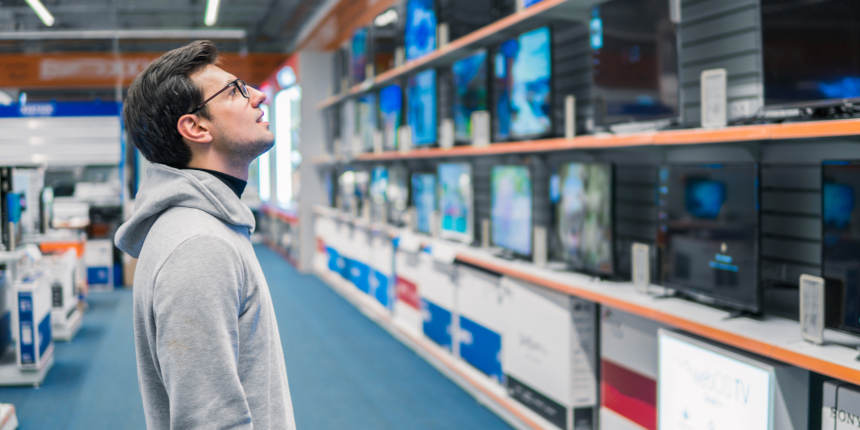
Navigate an unpredictable landscape with actionable, data-driven strategies tailored for your business from the brand down to the local level.

It’s said that the rise of Google, Amazon, and other tech giants will inevitably spell the end for physical retail. Why spend hours in the produce aisle when your supermarket will deliver groceries in just a few clicks? Why venture out for paper towels when you can just ask Alexa to order them for you?
In reality, reports of retail’s demise have been greatly exaggerated. Digital, in fact, presents huge opportunities for physical businesses. Think local SEO, sophisticated online-to-offline attribution, the increasing importance of online business listings.
And now there’s news that Google itself is apparently standing up for brick-and-mortar retailers—especially enterprise brands with distributed local footprints—by promoting in-store purchases ahead of online search. But how will the de facto search giant actually achieve its seemingly benevolent goal? And, more importantly, why?
Google was recently granted a patent for automatic delivery of customer assistance at physical locations. On the surface, it’s contextual tech that detects when a user is at a physical location to make a purchase. It then provides users with unprompted notifications—presumably via their device’s Google Assistant—to facilitate purchasing the product right there and then.
Imagine you’re shopping for a smart TV in a store; a TV you’ve previously researched online. Your phone lights up. It’s your Assistant asking if there’s anything else you need to know about your desired item.

Source: Google patent application
Knowing exactly where you are and which aisles you’ve been browsing, your Assistant deems you a “high-profit user”. It escalates your notifications to the second tier—remote chat support—and, ultimately, dispatches an in-store sales associate to your location to answer your burning questions about firmware, connectivity, and viewable angles.
So far, so handy. But, this being Google, there’s so much more going on beneath the surface. You don’t have to wait long for this whole idea to get a bit too creepy for its own good.
Part of Google’s patent application pertains to the use of your calendar, emails, texts, social media, instant chat, purchase histories, and reminder lists to generate these unprompted notifications.
That’s a lot of personal information, right? Well, that’s not even the disturbing part: the list also includes “communication information associated with a family member”. So, if your partner recently bought a turntable, your Assistant may clamor for your attention every time you venture too close to speaker cables.
It’s all very reminiscent of Target’s much-maligned data-driven campaign, which has become something of a marketing case study since 2012. Major retailer deduces from a teenage customer’s purchase history that she’s pregnant; sends her pregnancy-related offers. The problem? She hadn’t yet told her family, who inadvertently learned the news via store coupons mailed to their home.
Compare and contrast with Apple, who are taking strides towards greater user privacy, including blocking third-party user tracking by default. Are we seeing the two rivals diverge towards opposite ends of the privacy spectrum? Time will tell.
Subscribe to our monthly newsletter.
In its patent application, Google positions itself as a retail savior, helping in-store customers avoid wasting their time “searching for products on shelves, searching for sales associates, or searching for additional information needed to make an informed purchase of a product while in the store”.
But, at its core, the system’s intent is to stop a user going online, where they may complete the purchase. And why, exactly, would Google want to do that? To prevent its nemesis, Amazon, from making the sale.

Think about it. You’re back in front of that smart TV. You whip out your phone and Google for more information. You find yourself on a review site, whose glowing write-up includes a link to buy… from Amazon. In fact, most of the review sites you visit point to Amazon, whose affiliate programs dominate.
In other words, brick-and-mortar businesses aren’t really Google’s primary concern. In fact, Google likely won’t even make any money from this in-store innovation. It only wants to keep Amazon from taking another piece of the pie—because Bezos and co are gaining billions in market share every year.
A patent doesn’t necessarily mean anything, does it? Well, yes, we’re making some logical leaps and educated guesses. But all signs point to Google implementing exactly the kind of system we envision, and we’re fairly sure they’re acting to scupper Amazon rather than out of some selfless concern for retailers.
Want to effectively (and ethically) connect with your in-person shoppers? We’ll help your multi-location brand engage with audiences down to the hyperlocal level—even those impossible-to-predict impulse buyers.
Navigate an unpredictable landscape with actionable, data-driven strategies tailored for your business from the brand down to the local level.
Navigate an unpredictable landscape with actionable, data-driven strategies tailored for your business from the brand down to the local level.
Navigate an unpredictable landscape with actionable, data-driven strategies tailored for your business from the brand down to the local level.
Subscribe to our monthly newsletter.